Visiting Egypt was always something I dreamt of doing but before I was able to go, the Revolution happened and it changed things significantly for Egypt. Since 2011, Egypt has been in the news for political unrest and other events that led their tourism to drop to nearly a third of what it once was.
One of Egypt’s main attractions, Abu Simbel, once saw thousands of people in a DAY, but has now dropped to maybe 500. It has had a rough recovery, leading many people to believe that it still isn’t safe to visit. The decline in tourism is highly evident too. The main attractions have a handful of tour groups at once; the lesser known temples? Some of them we had entirely to ourselves.
As someone who loves photography and capturing pictures with no one else in them, I love when I find places empty and can shoot to my hearts desire. However, the places we saw were archeological wonders and the history is so incredible that I couldn’t help feeling a little sad at some of the locations because no one was there to see them.
I know a ton of people are curious about this country because I’ve gotten a lot of responses and questions about my trip to Egypt. And I probably had the same thoughts and concerns as you did before I went. Before I dive into everything you need to know about visiting Egypt, I’ll answer the most frequent questions I’ve gotten. Sorry if this post is longer and mostly text, but if you are truly interested in going to Egypt and/or have some reservations, read on!
Is Egypt Safe?
This is the most common question by far. Usually when you hear about Egypt in the news, it’s for something negative. At least it has been in the past. And it’s hard to give a simple yes/no answer because bad things can happen anywhere at anytime. Even in your own country.
Did I feel safe? Yes. Not once did I feel unsafe. The people seemed genuinely nice and the only thing they try to do is get you to buy something (occasionally at a highly inflated price). They can be relentless when trying to sell something but if you politely refuse, they move on. I also never witnessed anyone getting ‘cat calls’, whistled at or anything inappropriate said to them.
For me personally, I always felt safe. I had a wonderful trip and enjoyed my experience immensely. Would I go back? Absolutely.
Did I Go By Myself?
No. And this could very well be a part of why I never felt unsafe. I was with a 20-ish person tour group for the entirety of my trip. Tourism has suffered so much that tour operators take safety very seriously. In Cairo, we had a security guard join our tour group that followed us around to the different places. Was he there because it was necessary? I don’t think so. I think that the guides depend on what little tourism still exists, so they are over protective of their groups. If they get any such negative review or if anyone were to have a bad experience, they would not have a job. They cannot afford for anything else negative to affect tourism.
The only time a security guard was with us was in Cairo. Everywhere else, we walked around with our guide, learned a lot of things, had fun and had no problems.
I can’t really say if it is safe to go by yourself since that wasn’t my experience. What I do know, is that many, many people have done it and not had problems. Personally, I just felt more comfortable going on a tour (and my dad could sleep a little easier).
Egypt is not the first place I have been where people told me I shouldn’t go. I’ve been told that many times before and I’ve always gone. I’ve also never had a bad experience when going to those places. The same rules apply here as they do anywhere: know your surroundings, make smart decisions and do your research.
Now, that that’s taken care of, here’s everything else you need to know:
At the Airport + Getting a Visa
If you joined a tour, someone from the tour company will be waiting at the bottom of the stairs before you even get through immigration. There were about a dozen people with signs almost as soon as I stepped off the plane and from there, I was led through passport control seamlessly.
Most countries need a visa to visit Egypt. Certain countries (including the US) are able to obtain a Visa On Arrival. Otherwise, you will need to obtain a visa before you arrive. This was probably the easiest passport control I’ve ever been through, including my own country haha. I walked up to the Visa On Arrival desk, handed the guy US$25 in cash and he handed me a visa. NO WORDS WERE EVEN EXCHANGED. My tour guy then took my passport, put the visa in, handed it to a person at the counter and we walked through. That’s it. A Visa On Arrival costs $25 in CASH only and they will accept other currencies (but check their website to make sure they take yours). They also want exactly $25.
I booked my tour through a 3rd party and it was unclear if I would be picked up since I was coming a day before the tour started. Even through multiple emails, I could not get confirmation. They did pick me up even though I was early, but I had already pre-booked a ride from my hotel. So, I had two rides. I had to pay for the hotel ride even though I didn’t need it, so try ahead of time to find out for sure if you have a ride!
I had debated getting a taxi at the airport but I’m glad I had a pre-arranged ride. Once I got outside of the airport, there were a ton of people waiting outside for arrivals and I had no idea who was a legit taxi driver or not. It was hectic and I’d recommend rearranging it beforehand with your hotel if you don’t have a tour.
Getting Around Egypt
There are taxis everywhere but tourists beware–they will most likely hike up the price for you. It’s best if you arrange transport with your hotel or maybe even hire a driver if you don’t have a tour.
Things to note:
-There are a million security checkpoints throughout Egypt. I was really glad to be on a tour bus because you have to stop for each one.
-There are also speed bumps everywhere. It takes a lot of extra time to get places because you are constantly slowing down for either a check point or a speed bump.
-The driving is…hold-on-for-your-life-and-say-your-prayers terrible. Driving is absolutely crazy and it’s hard to see a car parked on the street that doesn’t have some sort of damage to it. I would never even consider driving here.
Currency/Cost
The currency in Egypt is the Egyptian pound. It’s useful to have when buying small gifts and souvenirs but surprisingly, a lot of people will accept other currencies.
Egypt also happens to be a very inexpensive country to visit…one of the cheapest in fact. I wouldn’t exchange much money before going because you may not end up spending it all. Meals are usually under $5, entrance fees are very low (see below) and souvenirs can be very cheap as well. If you take a tour, your tour should not be a lot either. At their normal rates, you can find 9-day tours for around $600, but there are frequent deals that will offer a discount (try looking on Black Friday! They often have 50% off tours). I’ve found a few 10-day tours that are nearly 4 times that cost and unless you are staying at 5-star hotels and eating at the best restaurants, it should not cost nearly that amount. A trip to Egypt is very affordable.
Tipping Culture
Egypt has a huge tipping culture. Tips are widely expected as many people are paid very low and depend on tips. It’s useful to keep small bills on you for services provided.
Egypt Itinerary
Of course there are many different tours you can take in Egypt. Most of them cover Cairo, Luxor and Aswan, with a few going to the Red Sea. If you don’t plan on taking a tour, check out 11 Things Not To Miss In Egypt for some of my favorite things to see and do in Egypt!
My Itinerary in Egypt:
- Cairo–The Giza Pyramids, Sakkara Step Pyramid, the Egyptian Museum, Khan El Khalili, the hanging church and the Citadel
- Aswan–The Philae Temple, High Dam of Aswan and a felucca ride down The Nile
- Luxor–Kom-Ombo and the Temple of Sobek, Habu Temple, Karnak, Luxor Temple, Colossi of Memnon, Valley of the Kings and the Temple of Hatsepshut
- Hurghada–the Red Sea
Optional Excursions in Egypt
There are many optional excursions you can add on to the tour if you want. Some of these (and their prices in USD based on the tour I took) include:
- Alexandria Day Trip $90
- Sound & Light Show at the Pyramids $36
- Cave Church & El-Mokatam Hill $20
- Memphis & Dahsure Day Trip $45
- Dinner Cruise on the Nile $36
- Hot Air Balloon over Luxor $130
- Abu Simbel Half Day Trip $90
- Nubian Dinner $22
- Mountain Dinner in Dahab $28
- Snorkeling in the Red Sea $35
- Diving in the Red Sea $65
**Prices may vary depending on tour operator. (I know for a fact that there are cheaper prices on some of these excursions–mainly snorkeling and diving. This just so happens to be the prices offered on my tour.)
The optional excursions that I chose to do were the trip to Abu Simbel, the Nubian Dinner and Diving in the Red Sea.
Abu Simbel was one of the places I was really looking forward to and it did not disappoint. It is farther to get to (about 3 hours) and one of the more expensive things to do, but it was amazing to see. The temples were moved and impressive to see. It was definitely a highlight for me.
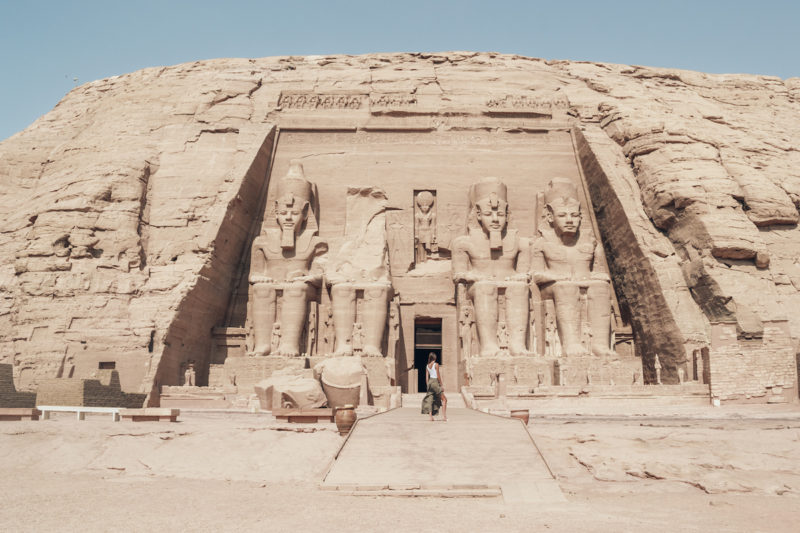
The Nubian Dinner was a pleasant surprise. We hopped on a boat to travel up the Nile River at sunset and the boat ride alone was a relaxing and fun thing to do. The Nubian town is painted bright colors which we didn’t really get to see since we arrived after dark. It wasn’t as touristy as I expected and we just went to someone’s home to eat dinner and experience their way of living.
Diving in the Red Sea was also on my list of things to do and it was amazing. The landscape was stunning and the fish incredibly colorful. I would highly recommend going snorkeling or diving for the day. It is well worth it!
I also stayed at a hotel right in front of the pyramids the day before my tour started and I was actually able to see the Sound & Light Show for free. I would highly suggest saving your money. It is mostly an audio recording that is hard to understand at times telling the history of the pyramids while a spot light goes from pyramid to pyramid. After 25 minutes, my heavily jet-lagged self could hardly take it anymore. When I found out it was an hour long, I bailed immediately.
Entrance Fees
One thing to make note of is the entrance fees. If you’re on a tour, make sure to check and see if these fees are included or not. Below are the costs of some of the main attractions:
Costs:
- 30 EGP The High Dam (USD$1.67)
- 60 EGP Habu Temple ($3.35)
- 80 EGP Kom Ombo, Hatshepsut Temple (80 for each) ($4.47)
- 100 EGP Luxor Temple, Edfu Temple, Philae Temple, Citadel ($5.59)
- 120 EGP Giza Pyramids & Sphinx, Sakkara Temple, Egyptian Museum (or 240 for combo ticket to the Mummy Hall), Karnak Temple ($6.70)
- 160 EGP Valley of the Kings ($8.93)
Every tourist attraction has a ticket that looks like this.
What to Wear + Bring
Egypt is a Muslim majority country–80% being Muslim and 20% being Christian–so most people are conservatively dressed. Upon arrival, our tour guide told us we could wear whatever we wanted and that people understood we were tourists and from different cultures. The tourist attractions are full of tourists and everyone sort of wears what they want at the attractions. Cairo is a more conservative city, and I personally felt more comfortable being covered up. Places near the Red Sea are beach destinations and people wear anything there. So really, it’s a personal choice. You will see a range of different outfits, so do what makes you feel comfortable.
On another note, I anticipated getting a lot of bug bites while I was there, especially sailing The Nile. Weirdly I got only one the entire time until we went to Hurghada on the Red Sea and I got 500 in one night. Bug spray might have helped. It also gets very hot, so any sun protection will be beneficial.
READ MORE: What to Wear in Egypt
WIFI
Wifi in Egypt is a little worse than terrible. It didn’t matter where we were, if there were full bars showing on my phone, it would still take 10 minutes to maybe get a photo sent or to post on social media, if it even went through at all. Messages will go through, photos are questionable and social media is pretty difficult to get on.
So, Should You Go?
I’ll recap from my own experience: I never felt unsafe. The Egyptian people were always nice to me, asked me questions, wanted to know where I was from (no one ever batted an eye when I said ‘America’) and even gave me small gifts! Visiting Egypt was incredible and I loved every single thing we did and I am so, so glad I went. Remember that bad things can happen anywhere in the world. If I listened to people every time they told me I shouldn’t go somewhere, I wouldn’t have been to half the places I’ve gone to. So, do your research. Be smart. Have an adventure.
PIN IT FOR LATER
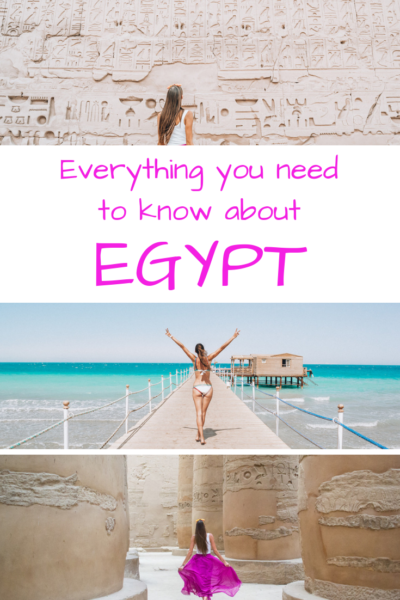

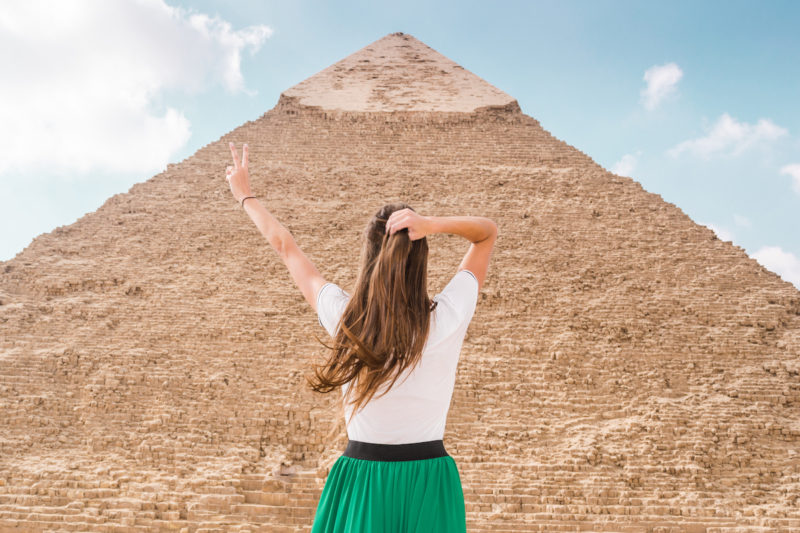
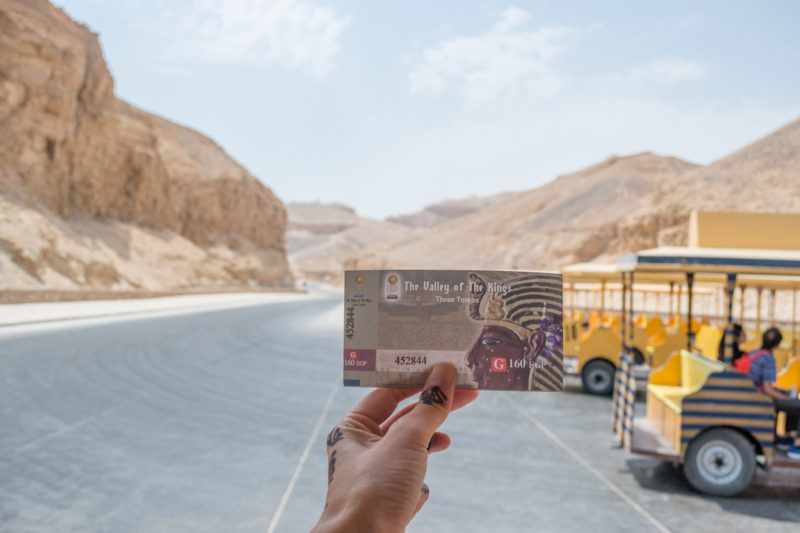

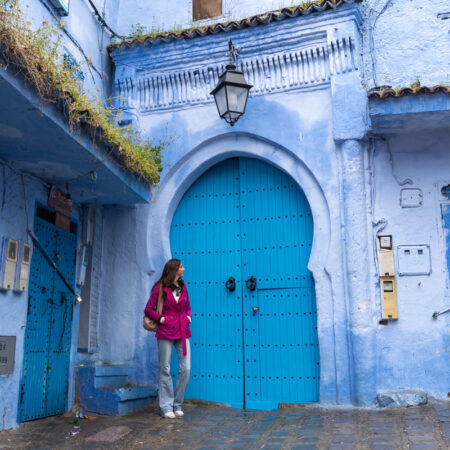
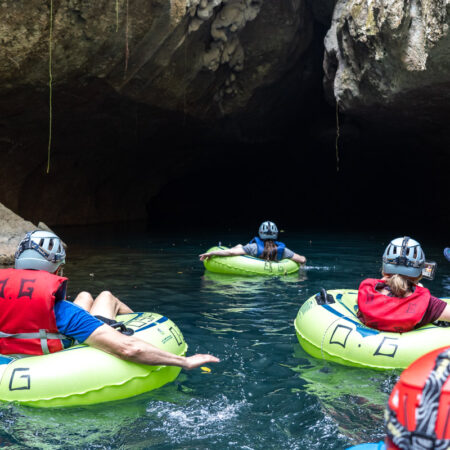
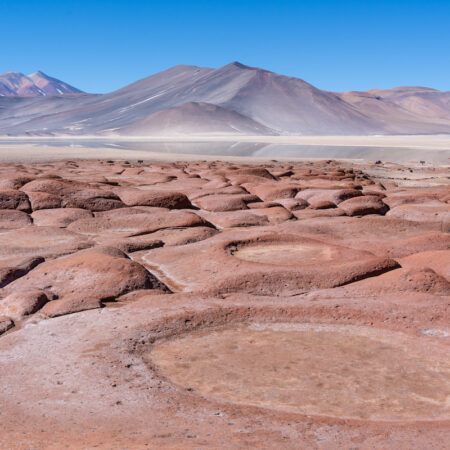

Leave a Reply